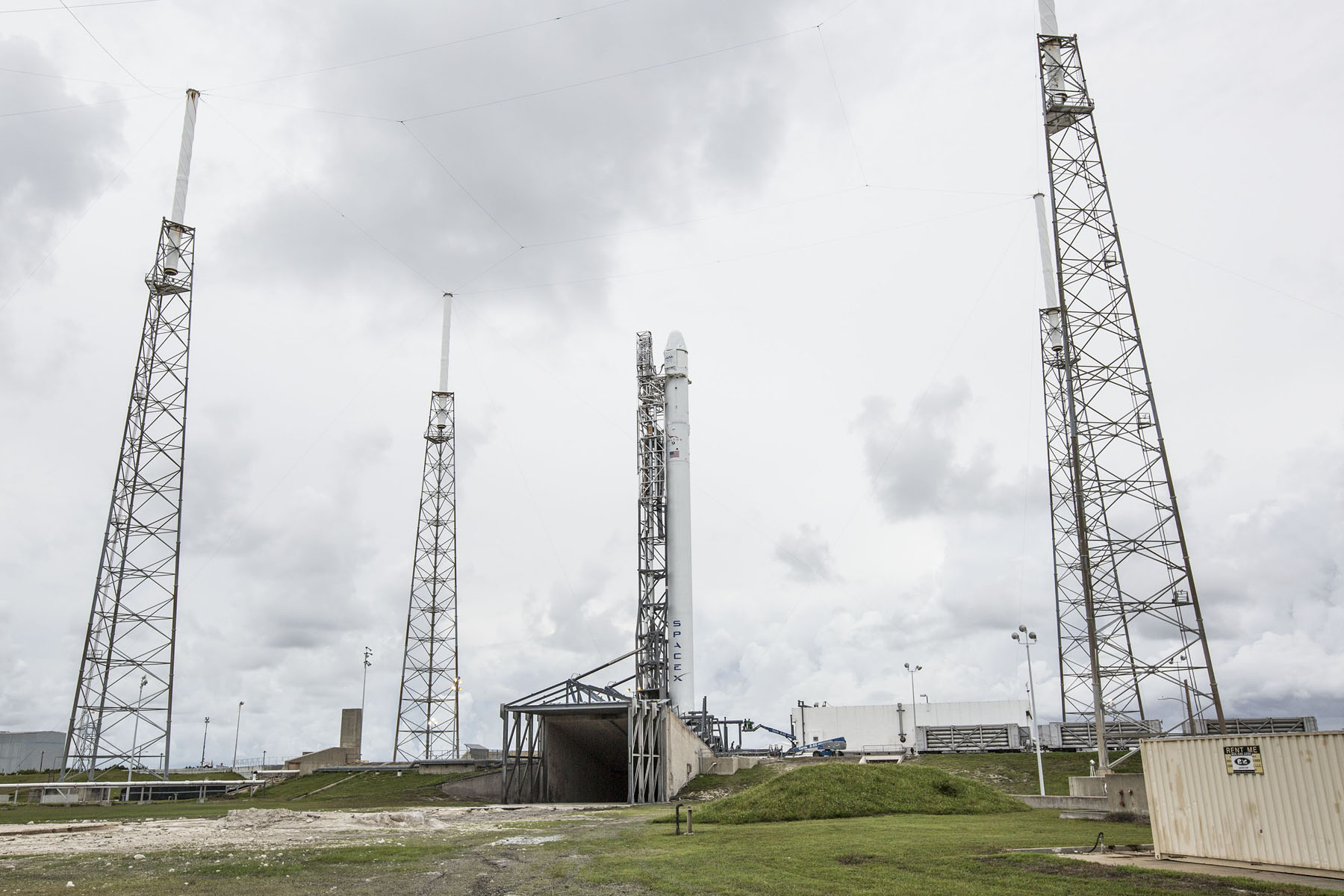SpaceX to Try Rocket Landing on Floating Ocean Platform, Elon Musk Says

CAMBRIDGE, Mass. — The private spaceflight company SpaceX is hoping to bring a rocket back from space and land it on a giant, floating platform in the middle of the ocean, SpaceX founder Elon Musk said Friday (Oct. 24).
The company is expecting to try to land the booster on the platform as part of their next launch to space. Musk explained that landing a reusable rocket on the floating platform — which measures about 300 feet long by 170 feet wide (91 by 52 meters) — is a big step toward bringing the company's Falcon 9 rocket back to dry land. Musk and SpaceX hope to develop reusable rocket systems and capsules in order to decrease the cost of access to space, which could even make a colony on Mars a viable option at some point.
SpaceX has already successfully flown boost stages of the Falcon 9 back to Earth, landing in the ocean after delivering various payloads to space, but the company has not attempted to land the rocket back on a floating platform before. According to publicly released schedules, SpaceX's next Falcon 9 launch is currently scheduled for December, when the California-based company is expected to launch its fifth official robotic cargo mission for NASA to the International Space Station using the Dragon spacecraft. [SpaceX Reusable Rocket Re-entry Caught by Chase Plane (Video)]

"We're going to try to land on [the floating landing platform] on the next flight," Musk said today during a discussion here at the Massachusetts Institute of Technology's AeroAstro 100 conference. "If we land on that flight, I think we'll be able to re-fly that booster."
Musk doesn’t necessarily think that this first attempt will be successful, however. The landing platform will be floating in the Atlantic Ocean with engines that can be used to keep it in position; however, it could still be "tricky" to land on top of it, Musk said.
Musk expects that SpaceX has about a 50 percent or less chance of succeeding in landing on the next flyback, but future launches and landing could have more chance of success.
"There are a lot of launches that will occur over the next year," Musk said. "I think it's quite likely that one of those flights, we'll be able to land and re-fly, so I think we're quite close."
Get the Space.com Newsletter
Breaking space news, the latest updates on rocket launches, skywatching events and more!
In July, SpaceX successfully brought its Falcon 9 booster in for a soft landing in the ocean after launching to space, but they weren't able to recover the rocket stage. After landing in the Atlantic, the Falcon 9 toppled over as planned, but, according to a Twitter post from Musk at the time, the boost stage broke apart shortly after the soft landing. Other than that, the July test appeared to go as planned.
Follow Miriam Kramer @mirikramer and Google+. Follow us @Spacedotcom, Facebookand Google+. Original article on Space.com.
Join our Space Forums to keep talking space on the latest missions, night sky and more! And if you have a news tip, correction or comment, let us know at: community@space.com.

Miriam Kramer joined Space.com as a Staff Writer in December 2012. Since then, she has floated in weightlessness on a zero-gravity flight, felt the pull of 4-Gs in a trainer aircraft and watched rockets soar into space from Florida and Virginia. She also served as Space.com's lead space entertainment reporter, and enjoys all aspects of space news, astronomy and commercial spaceflight. Miriam has also presented space stories during live interviews with Fox News and other TV and radio outlets. She originally hails from Knoxville, Tennessee where she and her family would take trips to dark spots on the outskirts of town to watch meteor showers every year. She loves to travel and one day hopes to see the northern lights in person. Miriam is currently a space reporter with Axios, writing the Axios Space newsletter. You can follow Miriam on Twitter.